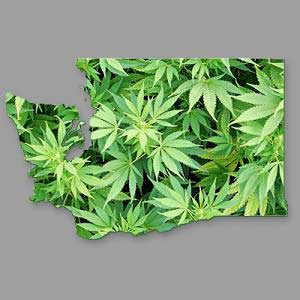A new laboratory has opened in a building that once analyzed hops for beer-makers, but the green matter going under the microscope now is hop’s more notorious cousin, marijuana.
A Seattle company that operates a medical marijuana testing lab, Analytical 360, was the first authorized by the state Liquor Control Board to certify recreational marijuana at its new lab, the Yakima Herald-Republic reported Sunday.
The lab will measure the level of THC, which produces the high. It also will check for mold, bacteria, parasites and pesticides.
“It’s not only providing the relative dose, but safety for the consumer,” said Randall Oliver, Analytical 360’s chief scientist.
The state requires that marijuana producers provide a 7-gram sample from every 5-pound lot of marijuana buds. For liquids, a producer must give a 2-gram sample from each batch, while edible marijuana producers have to supply a single item from each batch for testing.
The full battery of tests takes about a week to complete. If a sample fails a test, it is retested again and rejected if it fails a second time. The company will post the results on its website for the public to see, just as it now does with medical marijuana.
Information on CBD, the chemical said to give marijuana its medicinal properties, will also be listed on product labels, lab director Lara Taubner said.
The company expects testing to begin in three weeks. More than a dozen people will work at the lab, which was already set up for laboratory work when it was sold last year.
Hops are from the same plant family, Cannabaceae, as marijuana and share some common chemicals that give the plants their distinctive taste and aroma, Oliver said.
Although, Yakima has banned the production, processing and sale of marijuana, it welcomes the lab, which tracks test samples to make sure none are diverted.





